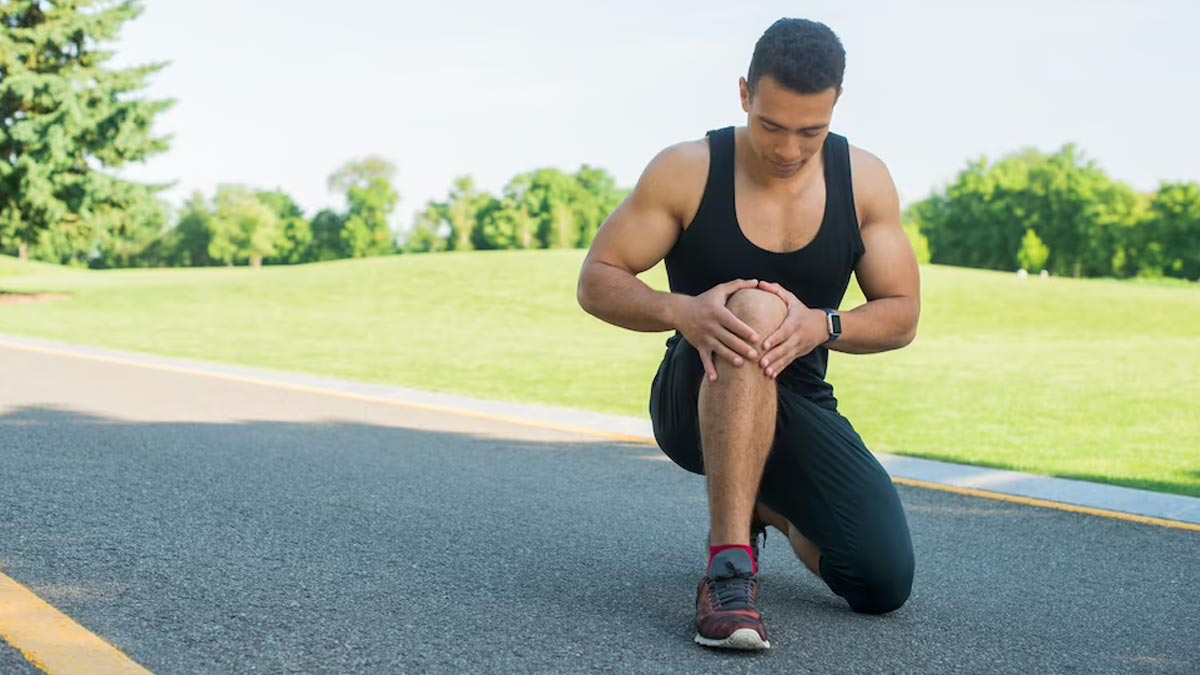
Have you heard about a runner's knee? It is characterised by a sore, dull, and aching pain around or behind the knee cap that occurs during or after running. Besides being distressing, it can restrict movements, which is why it is important to understand its causes to determine a treatment plan. Speaking with Only My Health, Dr Ashwani Maichand, Director - Department of Orthopaedics, CK Birla Hospital, Delhi, discusses some of the common causes of knee pain while running and tips to manage it.
Table of Content:-
Also Read: From Itchy Skin Rashes To Swelling In The Mouth, Warning Signs Of Wheat Allergy
Common Causes Of Knee Pain While Running

Here are some of the common causes of knee pain while running:
- Excessive training or overuse of muscles
- Injury
- Poor running form
- Poor foot support
- A knee-cap that is too high in the knee joint
- Weak thigh muscles
Dr Maichand says, “Excessive training and overuse lead to wear and tear of muscles over time, while injuries such as a sprain or strain can cause pain. Poor running forms, such as landing too heavily on the heel, can also contribute to knee pain. In addition, wearing shoes that don't fit properly or don't provide adequate support can also do some damage. Lastly, weak muscles around the knee joint can also make it more difficult to absorb shock while running, causing knee pain.”
Who Is More Prone To Knee Pain While Running?
Here are the common risk factors for knee pain that occurs during or after running:
- Runners with a history of knee injuries
- People who run with a poor form
- Individuals with inadequate conditioning, meaning lack of muscle flexibility or strength
- People who have increased their mileage or intensity of running too quickly
- Women are more prone to knee pain while running than men due to anatomical variation
There are other conditions that can cause knee pain or a runner's knee. These include arthritis, a pre-existing fractured kneecap, and plica syndrome or synovial plica syndrome, wherein the lining of the joint becomes inflamed.
Also Read: Foods That Act As Natural Blood Thinners And Prevent Clotting
Tips To Manage Knee Pain

Dr Maichand says, “Managing knee pain while running involves rest and using an ice pack to reduce inflammation and pain. Gentle stretching and strengthening exercises can improve knee function and reduce pain. In addition, wearing proper shoes, gradual progression of running, and seeking a doctor’s consultation if pain persists, also helps. It's important to consult a doctor or physical therapist for guidance on specific exercises and treatments for better outcomes.”
Takeaway
Whether you’re a beginner or a professional runner, knee pain is inevitable. The key is to understand its risk factors, to know what’s causing it, and to receive timely treatment. Knee pain management is extremely important, more so if you want to avoid future complications. That said, consult a doctor or a physical therapist, if you get a runner’s knee.
Also watch this video
How we keep this article up to date:
We work with experts and keep a close eye on the latest in health and wellness. Whenever there is a new research or helpful information, we update our articles with accurate and useful advice.
Current Version
